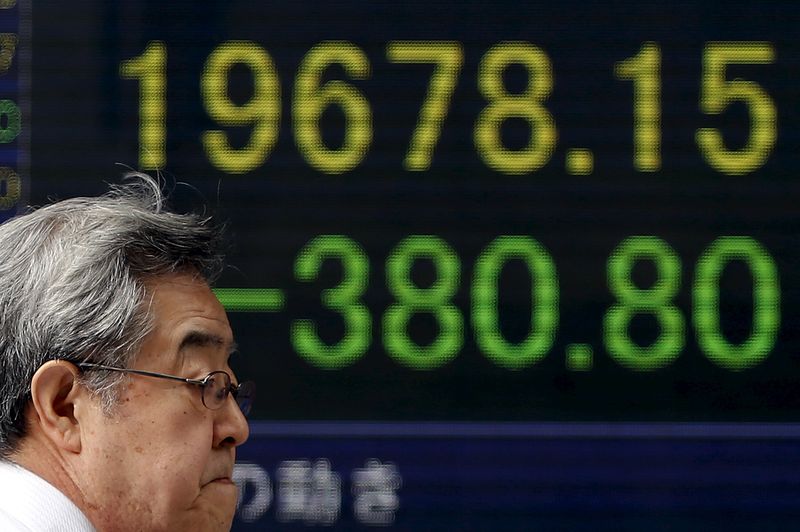This post was originally published on this site

Investing.com – Asia Pacific stocks were down on Monday morning, with investors awaiting Chinese economic data that could indicate a slowdown in economic growth.
China’s Shanghai Composite inched down 0.03% by 9:39 PM ET (1:39 AM GMT), and the SZSE Component was steady at 14,799.03. The country will release July data, including industrial production and retail sales, later in the day. The National People’s Congress Standing Committee will also begin a four-day meeting on Tuesday.
Hong Kong’s Hang Seng Index was down 0.49%.
Japan’s Nikkei 225 fell 1.41%, even as its GDP growing a better-than-expected 0.3% quarter-on-quarter and 1.3% year-on-year in the second quarter.
South Korean markets are closed for a holiday.
In Australia, the ASX 200 was down 0.40%. The Reserve Bank of Australia will release the minutes of its latest meeting on Tuesday while across the Tasman Sea, the Reserve Bank of New Zealand will hand down its policy decision a day later.
U.S. shares ended the previous session on a record high, but caution remained as data released on Friday said consumer sentiment dropped to a near ten-year low. The Michigan consumer expectations for August was 65.2, while the Michigan consumer sentiment for the same month was 70.2.
Meanwhile, investors continue to monitor the impact of Afghanistan’s fall to the Taliban globally. In other political developments, Canadian Prime Minister Justin Trudeau called an election for Sep. 20 while Malaysian Prime Minister Muhyiddin Yassin is expected to resign later in the day.
Central banks are also in the spotlight, with U.S. Federal Reserve Chairman Jerome Powell speaking at a town hall discussion with educators on Tuesday and the Federal Open Market Committee releasing the minutes from its latest meeting a day later.
“Markets are going to have to get comfortable with potential asset tapering from the Fed sometime in 2022,” Macquarie Private Bank division director Martin Lakos told Bloomberg.

